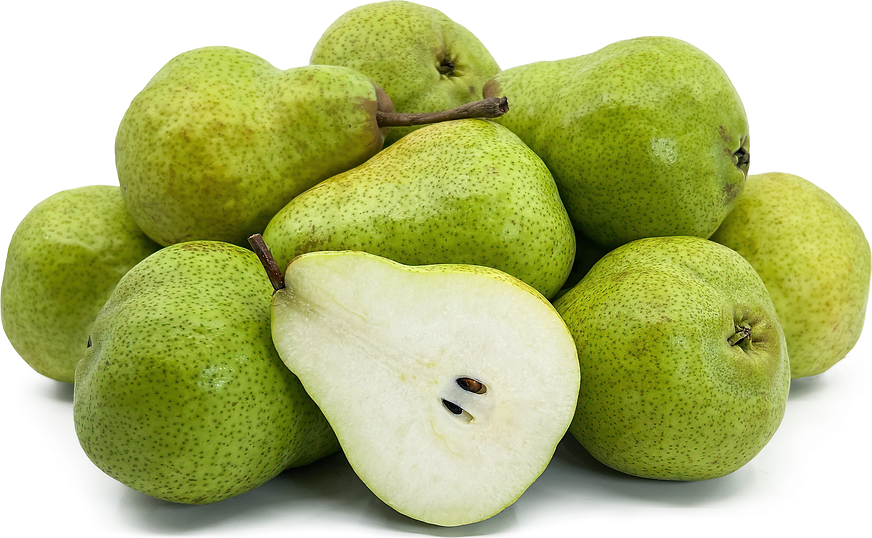
Pears are a delicious and nutritious fruit that offers a variety of health benefits. Known for their sweet flavor and juicy texture, pears are particularly beneficial for digestion and weight loss. This article provides Pears Knowledge by exploring how this sweet fruit can support these health goals.
Nutritional Profile of Pears

Pears are low in calories and high in essential nutrients, making them an excellent addition to a healthy diet. Here’s a quick overview of their nutritional benefits:
- Vitamins: Rich in vitamin C, vitamin K, and several B vitamins.
- Minerals: Contains potassium, which is important for heart health and maintaining proper fluid balance.
- Fiber: High in dietary fiber, particularly soluble fiber, which is key for digestive health.
Health Benefits of Pears
1. Aids Digestion
Pears are an excellent source of dietary fiber, which plays a crucial role in promoting digestive health:
- Fiber Content: A medium pear contains about 5-6 grams of fiber, which helps regulate bowel movements and prevent constipation.
- Gut Health: The soluble fiber in pears acts as a prebiotic, feeding beneficial gut bacteria and promoting a healthy microbiome.
- Digestive Disorders: Regular consumption of pears may help alleviate symptoms of digestive disorders, such as irritable bowel syndrome (IBS).
2. Supports Weight Loss
Incorporating pears into your diet can be beneficial for weight management due to their low calorie content and high fiber levels:
- Low-Calorie Snack: Pears are low in calories, making them a satisfying snack option that can help curb hunger without adding excessive calories.
- Satiety: The fiber in pears promotes feelings of fullness, reducing the likelihood of overeating and aiding in portion control.
- Hydration: Pears have a high water content, which can help keep you hydrated and contribute to a feeling of fullness.
3. Nutrient-Rich
Pears are packed with vitamins and minerals that support overall health:
- Vitamin C: This antioxidant helps boost the immune system and supports skin health.
- Vitamin K: Important for bone health and proper blood clotting.
- Potassium: Helps regulate blood pressure and supports heart health.
4. Antioxidant Properties
Pears contain various antioxidants that help combat oxidative stress in the body:
- Flavonoids: These compounds have been linked to a reduced risk of chronic diseases, including heart disease and diabetes.
- Anti-inflammatory Effects: The antioxidants in pears can help reduce inflammation, contributing to overall health and well-being.
How to Incorporate Pears into Your Diet
To enjoy the health benefits of pears, consider these tips:
- Fresh Snack: Eat pears raw as a healthy snack on their own or with nut butter.
- Salads: Add sliced pears to salads for a sweet and crunchy texture.
- Smoothies: Blend pears into smoothies for added sweetness and nutrition.
- Baking: Use pears in baked goods, such as muffins or tarts, for natural sweetness.
Conclusion
Pears are a nutritious and versatile fruit that can aid digestion and support weight loss. By providing Pears Knowledge, we can appreciate the significant health benefits this sweet fruit offers.
Incorporating pears into your daily diet can lead to improved digestive health, enhanced satiety, and overall well-being. Enjoying this delicious fruit as part of a balanced diet is a simple and effective way to support your health goals and promote a healthier lifestyle.
Read Also About Berries, such as strawberries, blueberries, raspberries, and blackberries, are not only delicious but also loaded with essential nutrients and antioxidants. Rich in vitamins C and K, fiber, and antioxidants like anthocyanins, berries are known for their powerful health benefits, including boosting the immune system, reducing inflammation, and supporting heart health.
Related Posts
 Berpikir Sistematis: Skill Wajib Mahasiswa Masa Kini
Berpikir Sistematis: Skill Wajib Mahasiswa Masa Kini
 Pembelajaran Hybrid: Wajah Baru Dunia Kampus di Tengah Perubahan Zaman
Pembelajaran Hybrid: Wajah Baru Dunia Kampus di Tengah Perubahan Zaman
 Kalkulus Lanjut: Pilar Pemahaman Matematika Tingkat Tinggi
Kalkulus Lanjut: Pilar Pemahaman Matematika Tingkat Tinggi
 Paramedicine Skills: Providing Urgent Care in College—What I Wish I Knew
Paramedicine Skills: Providing Urgent Care in College—What I Wish I Knew



